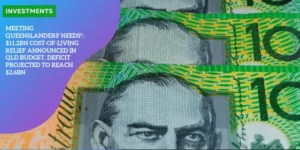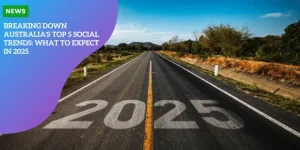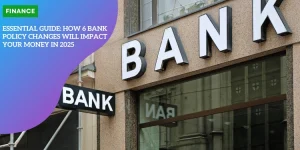Vodafone Completes £15 Billion Mega-Merger with Three to Form the UK’s Largest Mobile Network
A New Era for UK Telecommunications Begins
Vodafone has officially completed its long-anticipated £15 billion merger with Three UK, creating the largest mobile phone network in the United Kingdom.
Announced initially in June 2023, the merger was finalised on 31 May 2025 after nearly two years of negotiations, regulatory scrutiny, and strategic planning.
Now operating under the name VodafoneThree, the combined group represents a major shift in the UK telecoms landscape, bringing together around 27 million customers across both companies.
The newly merged company has declared bold ambitions to revolutionise the country’s digital infrastructure, beginning with a significant investment plan and an accelerated rollout of 5G services.
Strategic Vision: Billions Committed to 5G and Digital Infrastructure
VodafoneThree has committed to investing £11 billion over the next ten years, with £1.3 billion earmarked for this financial year alone.
This funding will primarily go towards building a robust 5G network with wider coverage, higher speeds, and improved service reliability.
Margherita Della Valle, Vodafone Group Chief Executive, described the merger as the creation of a “new force in UK mobile”.
She remarked that the agreement would reshape the UK’s digital landscape and establish its leadership in European connectivity.
According to Della Valle, “We are now eager to kick off our network build and rapidly bring customers greater coverage and superior network quality.”
She added that the deal concludes Vodafone’s broader strategy to reshape its European operations and signals a new phase focused on expansion and performance.
Competition Concerns and Regulatory Green Light
Despite the enormous scale of the deal, the merger was carefully reviewed by the Competition and Markets Authority (CMA) due to concerns that it could lead to reduced competition and potentially higher mobile bills for consumers.
The CMA ultimately approved the merger in December 2024, but only after Vodafone and Three agreed to a set of conditions designed to protect customer interests.
These included:
-
Mandatory investment in 5G rollout across the UK
-
Tariff protections capping specific mobile prices for a minimum of three years
-
Commitments to maintain service quality and prevent abrupt changes in pricing or customer experience
These assurances were critical in convincing regulators that the merger would not stifle consumer choice in a market that now has fewer major players.
The telecoms watchdog will continue monitoring the company to ensure these commitments are met.
A New Leadership Structure and Long-Term Growth Plans
Max Taylor, who previously served as CEO of Vodafone UK, will head the newly formed group.
He steps into the role of Chief Executive for VodafoneThree, with Darren Purkis, the former Chief Financial Officer at Three UK, now appointed as the group’s CFO.
The new company’s ownership is divided, with Vodafone maintaining a majority 51% share and CK Hutchison, Three UK’s parent firm, holding the remaining 49%.
Vodafone has the option to acquire the remaining stake after three years, further consolidating control if desired.
Both leadership teams have signalled that the company is positioned to deliver operational savings and efficiencies.
Indeed, VodafoneThree has forecast that it will save approximately £700 million annually within five years through shared infrastructure, streamlined operations, and consolidated services.
What This Means for Customers
The merger promises immediate and long-term benefits for customers across the UK.
In the short term, existing Vodafone and Three users are unlikely to see major changes in their service plans.
The companies have committed to preserving customer experience and affordability, with tariff caps in place until at least 2028.
In the long run, customers can expect:
-
Improved signal coverage
-
Faster 5G speeds in urban and rural areas
-
Fewer dropped calls and better reliability during peak hours
-
Simplified billing and customer service platforms
VodafoneThree’s investment will also support innovation in emerging technologies, such as edge computing, IoT (Internet of Things), and private network solutions for business and industry.

The Economics Behind the Merger
Beyond its consumer implications, the VodafoneThree merger is also being closely watched by investors and industry analysts.
Canning Fok, Deputy Chairman of Three UK owner CK Hutchison, and Executive Chairman of CKHGT, stressed that scale is vital to delivering the networks and services that modern customers expect.
He noted, “The Vodafone and Three merger provides that scale.”
By combining infrastructure and customer bases, the company hopes to reduce duplication of costs while unlocking new commercial opportunities.
The move aligns with wider trends in global telecoms, where mergers and acquisitions are increasingly seen as essential to funding next-generation infrastructure.
A Broader European Strategy
The deal also marks the conclusion of Vodafone’s effort to reshape its European operations.
In recent years, the telecoms giant has undergone a transition, shedding less profitable markets and focusing on building deeper, more integrated businesses in key regions.
With this merger complete, Vodafone now signals that it is entering a period of aggressive growth, supported by increased control of infrastructure and direct customer relationships.
Potential Industry Reactions and Competitive Landscape
With VodafoneThree now leading the market in terms of customer numbers, rival networks such as EE (owned by BT) and O2 (owned by Virgin Media) will be closely analysing the impact.
There could be a renewed push to upgrade their own services or explore partnerships in response.
However, some consumer advocates remain cautious.
They warn that consolidation often reduces price pressure, and it will be critical for regulators to hold the newly formed group to its promises.
Still, with enforced price caps and required investment, many observers believe the merger has struck a reasonable balance between innovation and consumer protection.
5G Expansion and Its National Importance
The significance of the merger goes beyond business strategy.
VodafoneThree’s 5G deployment is expected to play a central role in the UK’s digital future, impacting areas such as:
-
Remote working and video conferencing
-
Smart cities and digital transport networks
-
Real-time health monitoring
-
Next-generation education tools
-
High-speed internet access for rural communities
With 5G forming a core part of the government’s digital infrastructure roadmap, the £11 billion investment from VodafoneThree will likely complement national efforts to ensure the UK remains competitive in global innovation.
What to Watch Going Forward
Over the coming months and years, customers, regulators, and industry analysts will be watching for:
-
Tangible improvements in 5G speed and coverage
-
Transparent communication from VodafoneThree on customer changes
-
Continued regulatory oversight and enforcement
-
The company’s ability to meet its cost-saving targets
-
Possible acquisitions or partnerships from competitors trying to stay relevant
If VodafoneThree can successfully deliver on its commitments, the UK mobile sector could enter a period of rapid transformation — potentially leading to one of the most advanced and reliable networks in Europe.
Conclusion: A Bold Move That Could Reshape UK Connectivity
Vodafone’s merger with Three marks a watershed moment in the history of British telecommunications.
Now officially the UK’s largest mobile network, VodafoneThree has committed to transformative investments, strict regulatory conditions, and a vision of improved connectivity for all.
While concerns over market dominance remain, the immediate promise of better 5G access, improved infrastructure, and customer protections suggest that this could be a defining success story for the future of UK digital life.
As the network rollout begins and services evolve, millions of customers will be watching closely — and many will be hoping that this “new force in UK mobile” delivers on its promises.






